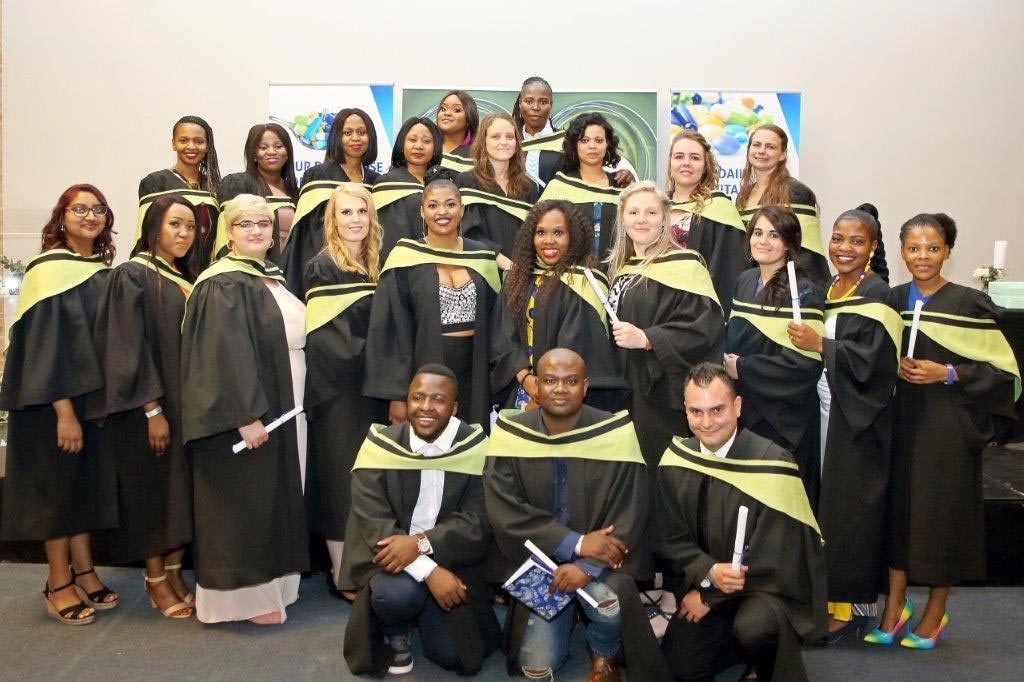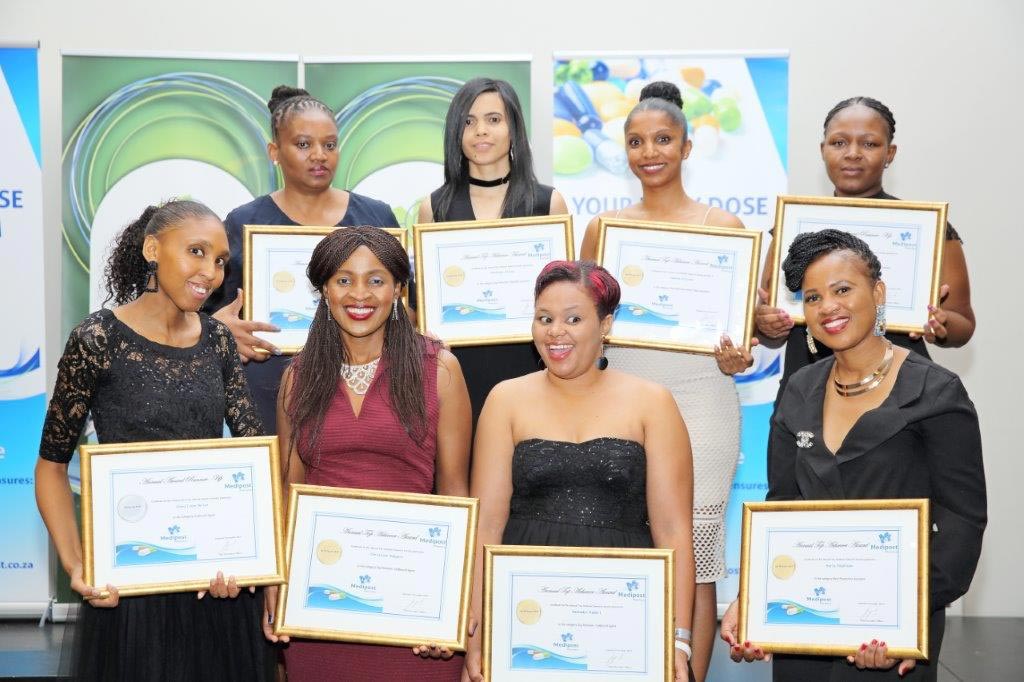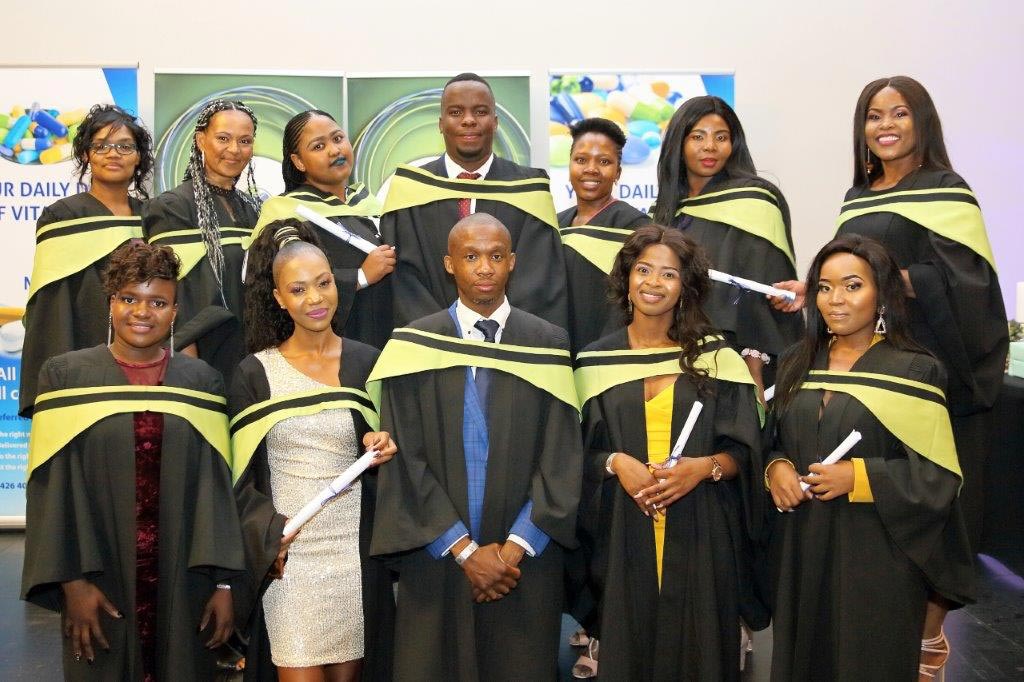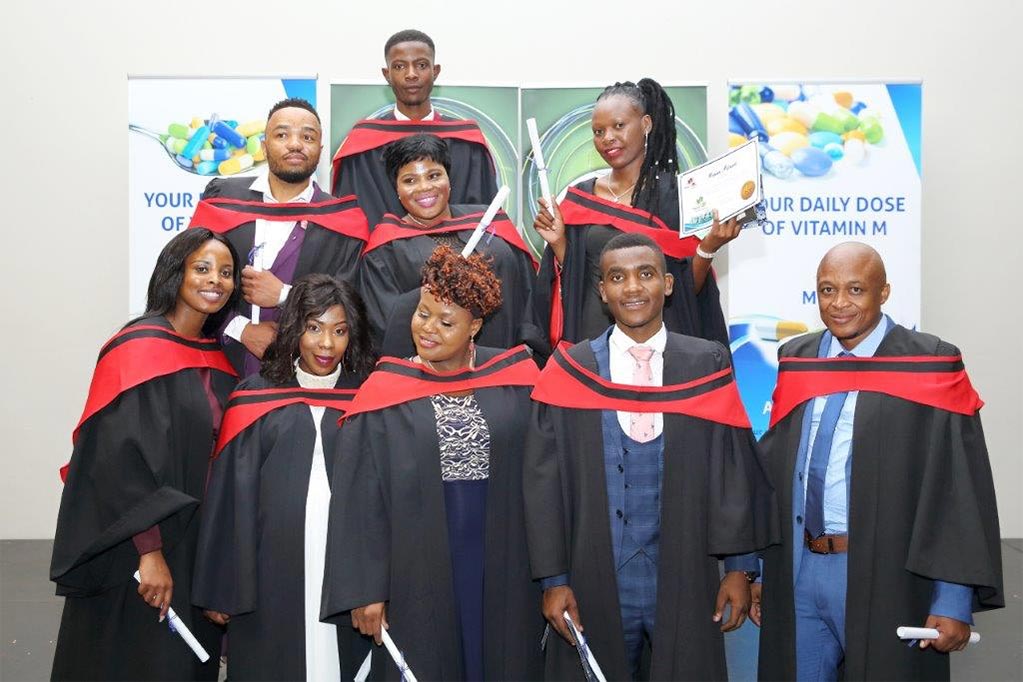Excellence and determination celebrated at MediTraining Academy Graduation
Drickus Maartens • January 9, 2020
In total, 47 Medipost Holdings employees graduated from the MediTraining Academy in November 2019, including nine MediLogistics staff members, one Kawari staff member and 37 Medipost Pharmacy employees. The independent training and development facility is operated by Medipost Holdings and places an emphasis on curricula that equip students to play an active role in an efficient and equitable healthcare delivery system within the wider South African context
Next generation steps up to fill skills gaps in SA health sector
Forty-seven men and women donned academic gowns to celebrate their MediTraining Academy
graduation recently, and are now setting their sights on a brighter future. Many of the graduates are now qualified in fields that are sorely needed within South African healthcare.
“Each one of these graduates has worked hard to get to this point, and we are extremely proud of the dedication and perseverance they have shown in preparation for achieving their qualifications,” says Noel Guliwe, chief executive officer of Medipost Holdings, which comprises Medipost Pharmacy, Kawari Wholesaler and Distributor, MediLogistics and the MediTraining Academy.
MediTraining Academy provides training for identified employees within the Medipost Holdings group of companies. The independent training and development facility is operated by Medipost Holdings, which places an emphasis on curricula that equip students to play an active role in an efficient and equitable healthcare delivery system within the wider South African context.
“There remains a serious shortage of post basic pharmacy assistants in South Africa, however through the MediTraining Academy we have the opportunity to develop existing staff members within Medipost Holdings and provide them with appropriate training to fill this skills gap,” Guliwe explains.
“These graduates are assisted to register with the South African Pharmacy Council, and gain practical experience at Medipost Pharmacy to develop their skills in the working environment so that they are equipped for future opportunities within the healthcare industry.”
In November 2019, a total of 47 employees graduated from the academy, including nine MediLogistics staff, one Kawari staff member and 37 Medipost Pharmacy employees. They graduated with qualifications including the National Certificate in Management Stores and Warehousing, and Qualified Post Basic Pharmacist Assistant certificates.
Minette Horstmann, operations manager of the MediTraining Academy, says that including the current graduates, the academy has trained 424 qualified Post Basic Pharmacists’ Assistants since 2011.
“At the graduation ceremony, a number of learners were recognised with special accolades for their achievements. Qualified Post Basic Pharmacist Assistant graduates Makatsane Thutse and Bonita Kruger both received Top Performer awards in their respective groups, while Munene Mabunda of MediLogistics Gezina hub was recognised for academic excellence for her achievement in the National Certificate in Management Stores and Warehousing,” Horstmann says.
The learners were asked to vote for the Post Basic Pharmacy Assistant student leadership award, which was presented to Katlego Mampane, as well as for the best MediTraining Academy Assessor, and this award went to Anneke Scheepers.
“On behalf of the Academy, I want to congratulate all our graduates who have not only earned valuable qualifications that will serve them well for their future career development.
“These learners have all worked hard and persevered through the challenge of balancing their studies with full-time employment. I would like to encourage each one of the graduates to continue their quest for knowledge and excellence, and they will surely discover their own unique way of contributing to our society and the profession,” she concluded.
















